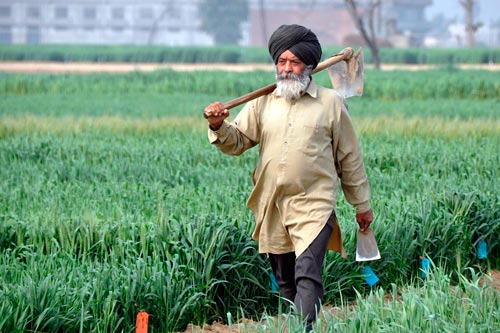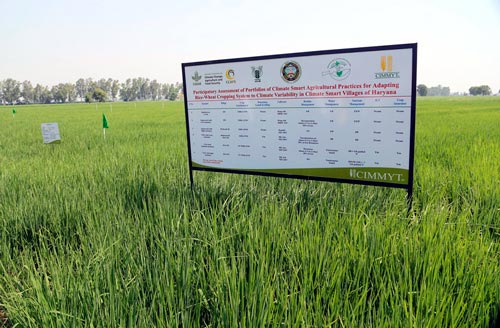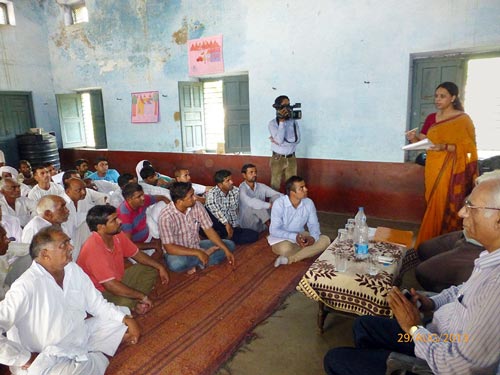
The Department of Agriculture (DoA) of the Indian state of Haryana, in collaboration with CIMMYT-CCAFS, developed an action plan to mainstream climate-smart agriculture (CSA) in the state and develop 500 new climate-smart villages (CSVs), at a workshop held on 8 June 2015. Over the past three years, Haryana has successfully adopted CSA technologies and practices through a CSV initiative of CIMMYT and the CGIAR Research Program on Climate Change, Agriculture and Food Security (CCAFS). Demand-driven policies and engagement by local governments are essential to ensure CSVs continue to expand throughout the country.
CSVs identify, adapt and evaluate demand-driven CSA interventions aimed at improving the capacity of local farmers to adapt to climate change. Northwest India, which is crucial to the country’s food security, faces diverse challenges to meet current and future food demands. Problems such as groundwater scarcity, soil health deterioration, heat stress, erratic rainfall due to climate change and high input costs are taking a toll on farmers.
In response, India has promoted a portfolio of successful CSA interventions, particularly in Haryana, and has developed over two dozen CSVs in the last three years. Rice-wheat systems in these CSVs have proven more resilient than other areas to tough climatic challenges, such as extremely high rainfall during the 2014-2015 winter season. While many farmers experienced yield losses of 30-50%, those in CSVs only lost 5-10%.
The success of 28 CSVs in Haryana’s Karnal district over the last three years has raised the confidence level of stakeholders, particularly the state’s DoA, which are now involved in developing more CSVs in the state in close collaboration with CIMMYT-CCAFS and partners.
According to an official letter issued by the DoA piloting the new 500 CSVs, “The farmers of our state are facing challenges of natural resource degradation, high input costs and frequent weather abrasions due to climate change. The adoption of climate-smart agriculture technologies [and] new innovative practices in agriculture is essential.”

Farmer-friendly policies that prioritize CSA have been implemented by the government of Haryana, but more has to be done to ensure further adoption of CSA throughout the state and the country. During the workshop, a roadmap was designed for implementing the 500 CSVs, that includes devising strategies to attract rural youth and women to agribusinesses across the state. Suresh Gehlawat, Additional Director Agriculture, government of Haryana, called this approach a “win-win for all stakeholders.” Knowledge sharing and capacity building to promote CSAs contribute to the continuous expansion of CSVs across state and country.

 Climate adaptation and mitigation
Climate adaptation and mitigation 
